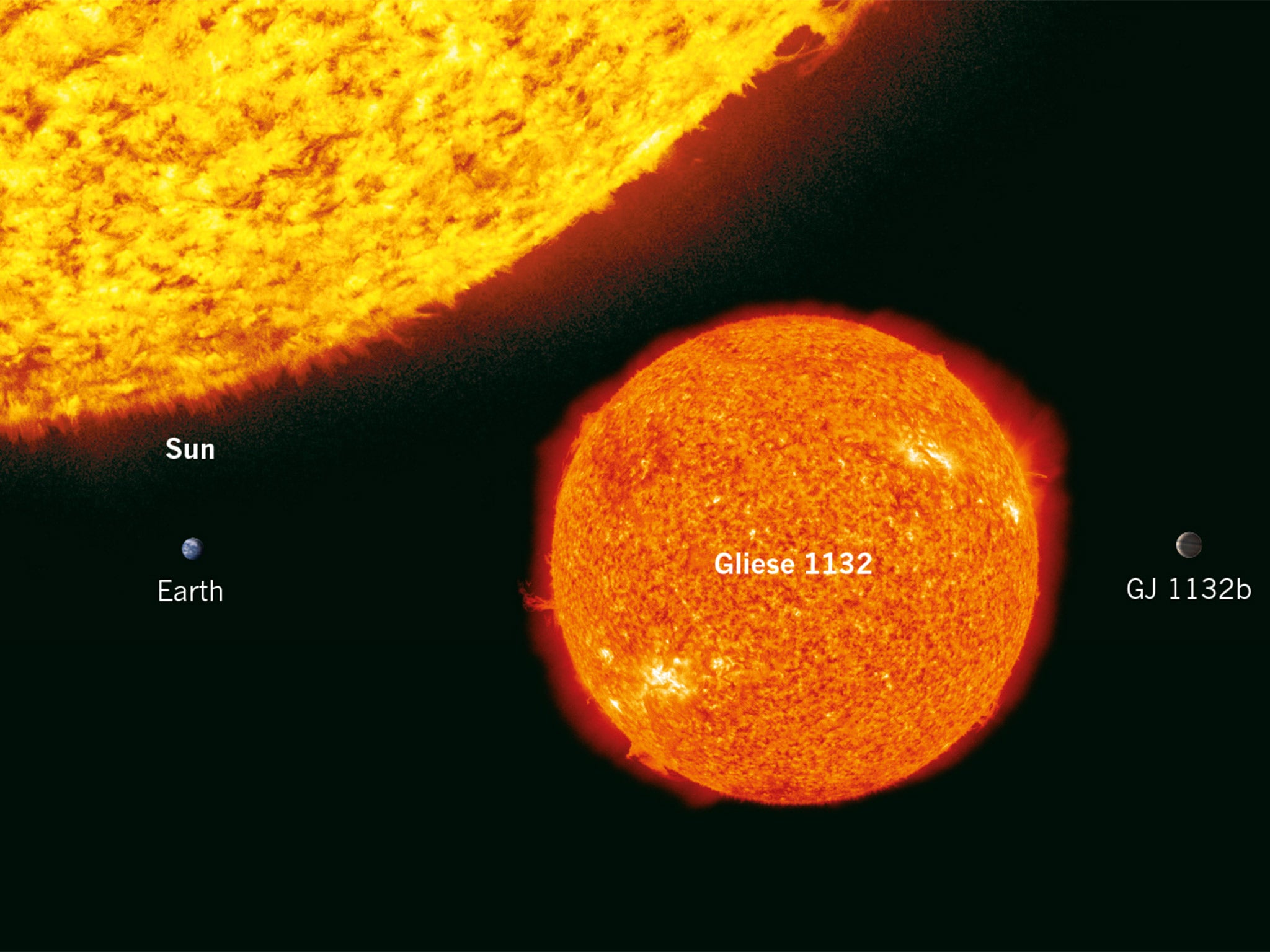New planet discovered: Venus-like 'exoplanet' GJ 1132b found in solar system close to our own
The rocky planet is slightly larger than the Earth and, like Venus, its surface is too hot to support liquid

A Venus-like planet has been discovered in a solar system relatively close to our own in what some astronomers are describing as arguable the most important “exoplanet” found orbiting a star other than the Sun.
The rocky planet, called GJ 1132b, is slightly larger than the Earth and, like Venus, its surface is too hot to support liquid water – but scientists believe the planet will be invaluable in the search for extraterrestrial life.
At 39 light years away, GJ 1132b is the nearest rocky exoplanet yet discovered. Its relative proximity to Earth and the fact that it orbits its star once every 1.6 days means that astronomers now have an important test-bed to study the atmospheres of other far-away planets with telescopes that could detect the first chemical signatures of life beyond the Solar System – such as atmospheric methane.
Planet GJ 1132b orbits so close to its own star that its temperatures reach a scorching 232C, which although too hot for life – at least as we know it – are still cool enough for the planet to possess an atmosphere, raising hopes that scientists will be able to analyse its chemical composition from Earth to study its winds and even the colours of its sunsets.

“Our ultimate goal is to find a twin Earth, but along the way we’ve found a twin Venus. We suspect it will have a Venus-like atmosphere too, and if it does we can’t wait to get a whiff,” said David Charbonneau of the Harvard-Smithsonian Centre for Astrophysics in Cambridge, Massachusetts, who led the study published in the journal Nature.
Astronomers discovered the planet by monitoring and measuring the small fluctuations of light from the star Gliese 1132 as the planet passed in front of it every 1.6 days. The scientists calculated that the planet is orbiting at a distance of 1.4 million miles from the star, compared to the 36 million miles between the Earth and the Sun.
“If we find this pretty hot planet has managed to hang onto its atmosphere over the billions of years it’s been around, that bodes well for the long-term goal of studying cooler planets that could have life,” said Zachory Berta-Thompson of the Massachusetts Institute of Technology.
“We finally have a target to point our telescopes at and dig much deeper into the workings of a rocky exoplanet and what makes it tick…. This planet is cool enough that it can retain an atmosphere. So we think this planet probably still has something of a substantial atmosphere in its current state,” Dr Berta-Thompson said.
GJ 1132b is about 16 per cent larger than the Earth and although its solar orbit is much closer than that of our own planet, its sun is a “red dwarf” star far smaller than the Sun . The planet is probably in a locked orbit, meaning that one side of its surface permanently faces its star while the other always points out to space, much like the Moon’s orbit around Earth.
“The temperature of the planet is about as hot as your oven will go, so it’s like burnt-cookie hot. It’s too hot to be habitable. There’s no way there’s liquid water on the surface, but it’s cooler than the other rocky planets that we know of,” Dr Berta-Thompson said.
“We think it’s the first opportunity we have to point our telescopes at a rocky exoplanet and get that kind of detail, to be able to measure the colour of its sunset, or the speed of its winds, and really learn how rocky planets work out there in the Universe,” he said.
Join our commenting forum
Join thought-provoking conversations, follow other Independent readers and see their replies
Comments